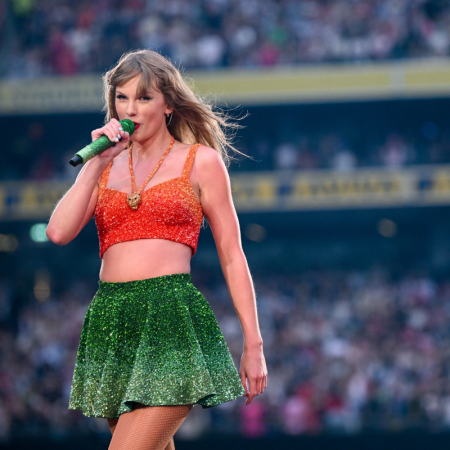Joe Rogan has expressed concern over social media being used as a tool to spread misinformation on health issues.
Speaking on The Joe Rogan Experience, the powerhouse podcaster spoke with guest Max Lugavere, a filmmaker and health and science journalist, about the dangers of toxic "forever" chemicals being found in products used by consumers.
PFAS, which stands for per- and polyfluorinated alkyl substances, are a class of chemicals that can be found in a range of everyday products, from toilet paper to food packaging, cosmetics and dental floss. Nicknamed forever chemicals, these compounds break down very slowly over time and stick around in their surrounding environment.
As a result, the chemicals can be found in soil, oceans and waterways around the world. A 2023 study by the United States Geological Survey found that nearly half of the nation's tap water was contaminated by some sort of PFAS.
The widespread nature of these chemicals is concerning as numerous studies have found associations between PFAS exposure and increased blood cholesterol and blood pressure, reduced immunity, reproductive issues and a higher risk of certain cancers, the U.S. Agency for Toxic Substances and Disease Registry recently reported.
Lugavere said that when it came to the issue: "You talk about this stuff today on social media and you're accused of fear-mongering of being alarmist."
Rogan questioned whether "trolls from pharmaceutical companies" were responsible for dismissing such statements online, adding that such practices are "something that I guarantee you corporations use. If nations use it—and we know they do—and know that there's troll farms in Russia, we know this is a real thing, Why wouldn't corporations use that too?"
After pointing out cases of conflicts of interests with those in government agencies and food and pharmaceutical industries, Lugavere cited an article that he commended for "exposing how the food industry pays dietitians to promote a certain ideology around food—that all foods are cool, you just have to eat less and move more. All foods fit, there are no good or bad foods... It's hilarious. It's crazy."
"I mean these companies they pay these people that are body positive influencers as well," Rogan weighed in. "So they're basically paying people that are ill because of eating these things to tell other people it's OK to eat these things.
"And then it's somehow or another phobic, whether it's fatphobic or whatever it is, to not encourage body positivity and it's stupid. It's just stupid. It's stupid for the people that are getting it, it's stupid for the people that are promoting it.
"It's stupid for our culture to be inundated with this nonsense and misinformation where we have to sort through it and try to do deeper research and consult people who actually understand what's going on. It's so disheartening that we live in this world that's so compromised by money that information about key things like your own health is so distorted that it's hard, like...
"You know, you talk to people and so many people have like a basic misunderstanding of what is good and not good for you. And all of it is because of this kind of thing that it's just so prevalent and it's so confusing and you're getting expert advice from people."
Rogan, who himself has been accused of spreading misinformation regarding COVID-19 vaccines, went on: "One of the things is crazy to me is that we get expert advice from people that are clearly sick. How many times have you had nutrition or dietary advice from someone who is obese? You're fat, you have no muscle, your body looks like it's just in decay and you're the person giving advice."
Earlier this year, doctors issued a warning over "dangerous" sun protection trends on social media after a study found that one in seven Americans under 35 think daily sunscreen use is more harmful than direct sun exposure.
In a national survey, Rajesh Nair, an oncology surgeon at the Orlando Health Cancer Institute, and his team found that young adults are likely to believe myths and misinformation around sun protection, with 14 percent of 18-35-year-olds believing the risks of sunscreen outweigh the dangers of sun exposure.
As well as misinformation regarding the safety of sunscreen, the study also highlighted several concerning trends promising "natural" sun protection. For example, nearly one in four under-35s believe drinking water prevents sunburn.
"There is no scientific data suggesting that drinking water provides any protection from the sun," Nair told Newsweek.
Disclaimer: The copyright of this article belongs to the original author. Reposting this article is solely for the purpose of information dissemination and does not constitute any investment advice. If there is any infringement, please contact us immediately. We will make corrections or deletions as necessary. Thank you.




